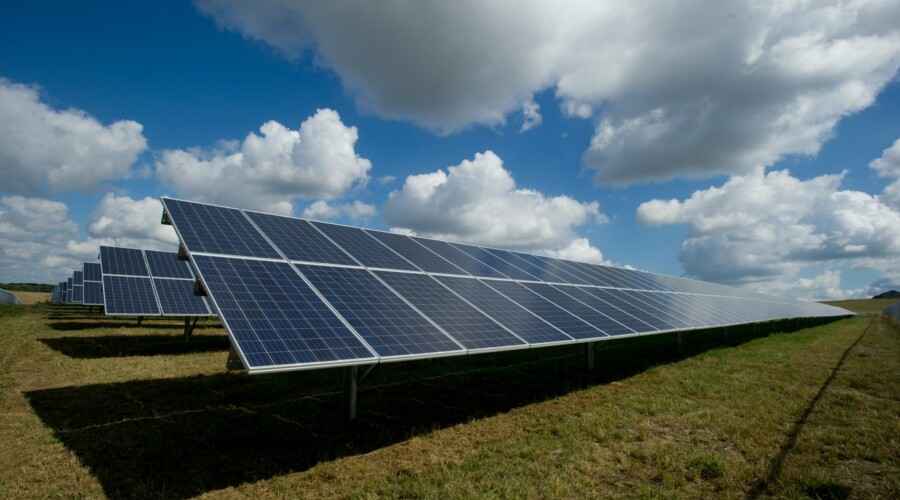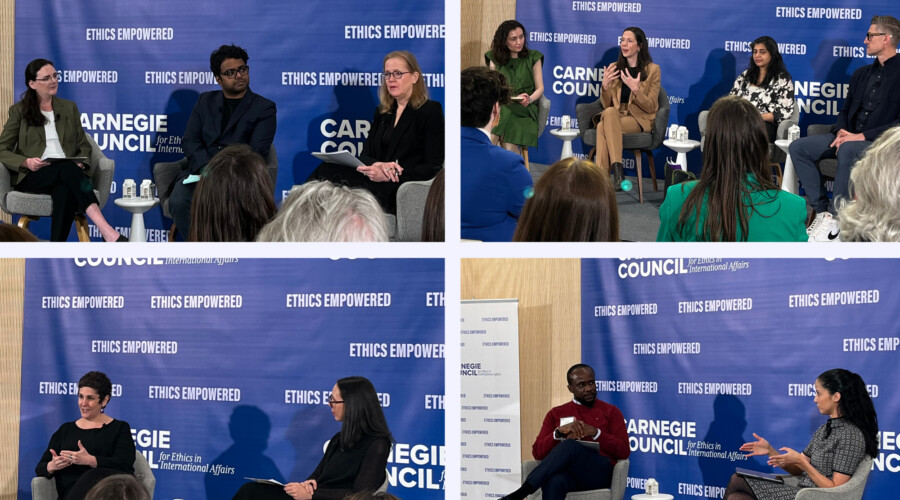No first prizes were awarded.
SECOND PRIZES
Mary Lemmer, age 21, University of Michigan. Essay, Who Pays for Global Warming?
Elias Majid, age 21, Loyola University, Chicago. Video, Ecological intervention—Urban Permaculture
THIRD PRIZE
Chike Hasani Outlaw, age 26, San Diego State University. Essay, Who Should Pay for Global Warming?
Who Pays for Global Warming? Mary Lemmer (Second Prize)Appropriate Allowance Allocation
Past commitments to stabilize greenhouse gas emissions have not resulted in the desired reduced emissions levels. For instance, in 1992, 189 countries, including the U.S., China, India, and the European nations, signed the UN Framework Convention on Climate Change, consenting to bring greenhouse gases to a level that would not damage the climate system. However, emissions levels have not fallen as a result. In fact, U.S. per capita emissions have actually risen. China and India refuse to commit to any quantified emissions reduction targets for several valid reasons. They claim that the current carbon emission problems are a result of industrialized nations' emissions, thus making it the responsibility of those nations to fix the current climate crisis. All that aside, typical U.S. citizens emit multiples more than residents in China and India and are better equipped than poorer nations to pay to fix carbon emission related problems. These current stances reflect both past and current problems associated with greenhouse gas emissions. Philosopher Peter Singer proposes a seemingly fair solution that fails to consider important factors such as the root cause of the current global carbon situation and the pitfalls of cap and trade regimes. I argue that Singer's proposal does not provide the most reasonable way to allocate carbon emission allowances worldwide, and propose alternatives to allocating allowances in a just manner. According to Singer, the first step is to decide on the tolerable amount of greenhouse gases that can be emitted worldwide without causing the earth's average temperature to rise beyond the point in which climate change becomes a severe situation. This total is then divided by the world's population to determine each person's total share of allowable emissions. By multiplying individual allowances by each country's population, a greenhouse gas emission quota can be assigned to each country. The final step to his idea includes the creation of a scheme mirroring cap-and-trade regimes, in which countries that need to emit more carbon dioxide can buy the right from countries that emit less than their quota. Creating marketable emission credits, defining property rights to those goods, and allowing trade between countries would enable countries to make themselves better off by selling or purchasing extra allowances. There are a few aspects of Singer's proposal that deem it fair and practical. First, he points out that each person deserves access to an equal portion of the atmosphere's capacity. Singer is correct in his determination that the atmosphere is a public good and everyone should have equal access to it. There are also practical benefits to Singer's proposed solution. It allows developing nations to sell allowances to richer countries that desire to emit more, making it appear to be a Pareto improving situation. However, this scheme could make developing nations worse off because it induces rich countries to outsource their pollution to developing countries that are already suffering disproportionately from pollution, a topic I will explore further later on. Though Singer's proposition appears fair and practical when first considered, the implications of his proposal extend beyond his claims. I argue that Singer's proposal is neither entirely fair nor practical. Based on similar existing emissions trading schemes, it can be inferred that cap-and-trade policies are not necessarily fair or practical. For instance, the European Trading Scheme's initial distribution of allowances has provided an oversupply of allowances that fails to yield any true net reductions in carbon dioxide emissions. Carbon trading schemes have also been criticized on measures of enforceability, emission reduction measurement, coordination and regulation. An overriding institution is necessary to coordinate trading, ensure emissions reductions are valid and accurately measured, and enforce strict regulations on traders and reduction projects. Even then it is difficult to coordinate trading efforts. For example, the Chicago Climate Exchange, an active, voluntary, and legally binding trading system to reduce greenhouse gas emissions, fosters trading between participating members, and still suffers criticisms in regards to ensuring enforceability and measurement in particular. Thus, Singer's idea may be infeasible, as an international trading scheme would prove to be even more complex and difficult to implement. Furthermore, Singer's suggestion to allocate equal amounts of allowances to all individuals is not fair in and of itself. If all countries started from ground zero, with no carbon emissions on their plate, Singer's proposal could be considered a fair distribution of emission allowances. In this scenario all countries are emitting the same amount, so it would be fair to equally divide rights to emit along them. However, in reality this is not the case. Developed nations have emitted disproportionately more than developing nations, so to doubt the fairness behind granting both the same rights to emit greenhouse gases. This issue is similar to obstacles that have arisen when considering implementing carbon-trading schemes between companies. Current proposals for cap-and-trade schemes question whether or not companies that have already achieved self-imposed emission targets would receive more allowances than higher polluting companies. Is it fair to give high polluting companies the same amount of emission permits as companies who have pioneered emission reduction activities? Similarly, is it fair to grant higher polluting citizens the same amount of allowances as citizens that pollute less, due to less industrialization and access to resources? Neither can be considered an equitable distribution of allowances as it does not take into account past efforts of countries. The effects of granting the same amount of allowances to all individuals should be considered when attempting to implement a fair and practical distribution policy. If everyone has equal right to emit carbon and citizens in rich countries are emitting more than those in poor countries, there will be an incentive to outsource polluting activities to those countries already suffering disproportionately from pollution. In this case, rich countries that have reached their limit will be inclined to send their pollution to countries that have not met their emissions cap. Rich nations outsourcing pollution is analogous to saying rich persons' lives are more important than lives of those in the countries where pollution is sent to. It clearly is not just to say the lives of the rich are more valuable than poor, and thus Singer's proposal cannot be considered fair. Another objection to Singer's proposal arises when considering the differences between rich and poor nations. Since developed countries are more culpable for the current global climate crisis they should be granted fewer allowances than their less responsible counterparts. Regardless of who is to blame, it does not seem fair to expect developing nations to reduce emissions when they can barely afford to feed their families. Developed nations are better able to invest in efficient technologies and reduce their greenhouse gas emissions and so should have more responsibility to fix the damages from climate change. The Stern Review on the Economics of Climate Change, the most comprehensive study of the macroeconomic effects on the world of our climate change activities, estimates that the costs of mitigating the effects of climate change, is on the order of 1 percent of global GDP each year, when damages are expected to vary between 5 percent and 20 percent of global GDP. A disproportionate share of the damages accrues to developing nations though, and to pay to fix the damages would encompass a larger proportion of their GDP than richer and more polluting nations. An alternate distribution scheme would be to grant poor countries more allowances than rich countries, in attempts to force the rich to cut back on their emissions or pay more for allowances to pollute at their current levels. Though it seems undeniable that distributing more allowances to the poor is a far more equitable alternative than granting equal amounts, some may object to this proposition. Some developed countries not participating in the Kyoto Protocol, an international agreement to reduce GHG emissions, the U.S. in particular, argue that the greatest increases in GHG emissions are likely to come from the developing world, as countries such as China and India grow and demand more GHG-based energy production. When considering future emissions instead of past or present emissions, it appears as if it may not be just to give more allowances to developing nations that are increasingly emitting more greenhouse gases. My response to this objection brings up the fact that developing nations are nowhere near our current standards of living, so for them to increase their emissions at all will still not amount to our base level emissions. It appears as if the poor have been less responsible for the current atmospheric situation, so should have less responsibility to reduce their emissions. An alternative route to distribution greenhouse gas emission allowances would be to grant more rights to developing nations than developed nations. Nevertheless, carbon trading in general requires a large institution to enforce trading regulations, coordinate trading efforts, and measure emissions, which may not be a practical solution to solve the global climate crisis. If such a scheme were to be implemented, however, appropriate allocation of allowances will be key in determining the fairness and practically of carbon regulation.
Ecological intervention—Urban Permaculture Elias Majid (Second Prize)
Who Should Pay for Global Warming? Chike Hasani Outlaw (Third Prize)
To borrow an analogy, if five people were to eat two-thirds of a pizza and two more people showed up, would it be fair to split up the rest of the pizza evenly between all seven people? Even further, when the check came, would you ask the last two arrivals to chip in on the cost equally? Conventional wisdom would say no to both of those questions. But when it comes to global warming, conventional wisdom doesn't always prevail. So if we replace 'pizza' with 'atmosphere's absorptive capacity', who should bear the largest cut of climate change mitigation and adaptation? In short, the answer should be 'we do'. To clarify, 'we' doesn't solely mean the United States and the European Union, or even the whole industrialized world. However, any policy that is concerned with the burdens of climate change cannot, in fairness, ignore the overwhelmingly uneven emissions of the US and the EU compared to the rest of the world, over the last 150 plus years. There is a correlation between carbon emissions and a country's wealth; the more emission the wealthier the country. And even though the current populations of the US and EU are not directly responsible for the emissions from a post-industrialization steel plant, surely the populations have benefited from those past emissions while residents of developing nations have been, and will be harmed by them. In economics this is what is called a 'negative externality', where one party does not pay the full cost of an action and forces that burden onto some other non-participating party. The negative externality of climate change is that carbon emissions dissipate uniformly into the atmosphere. As the climate is affected, those able to pay for adaptation measures (i.e. those who have benefited from higher emissions) can do so while the developing and underdeveloped countries of the world who cannot afford adaptation measures, suffer the consequences from an action of which they had no part. This would be like saying that the two latecomers to dinner had to pay evenly for any appetizers that were eaten before they arrived. It doesn't seem fair when you go out to dinner, why should it be any different with regards to climate change? However, there is a key component when assigning culpability. Just as it would be unfair to hold some one accountable for an action that they did not participate in, it could also be argued that it would be unfair for a personto be held accountable for an action that they did not know was causing harm, within reason. For instance, if a heart doctor has a patient that is terminally ill and needs a heart transplant, and a heart becomes available, the doctor has every right, even a duty to give the terminally ill patient that heart to save his or her life. However, if the doctor finds out that his organ supplier has been harvesting organs from unwilling donors, the doctor has an obligation to refuse any more organs from that supplier. If the doctor continues to accept the organs, even if he is not directly involved in harvesting the organs himself, his complicity in accepting the illegally obtained organs makes him just as blame-worthy as the person who is killing other humans to get the organs in the first place. The scenarios diverge on the point when the doctor gains knowledge of the illegal actions. This is the same measurement for determining payment for climate change. Through the majority of the last 150 years, there was not a scientific consensus about the effect increased emissions of CO2 would have on the global climate system. However, after the findings of the Intergovernmental Panel on Climate Change report in the early 1990's, anthropogenic climate change resulting from CO2 emissions was established as common, and widespread knowledge. This is equivalent to the doctor finding out that his organ supplier was conducting illegal activities. At this point, reduction measures should have been implemented that could be strictly 'forward looking', meaning not taking past actions into account because prior acts were not done with full knowledge of their negative impact. However, not only have many industrialized countries not reduced emissions, some have even increased emissions since the report was issued. This is the problem with policies such as the Equal Per Capita Shares (EPCS) approach that are not 'backwards looking'. Focusing solely on present and future emissions is not only unfair, it is also unjust because widespread knowledge of harm has been accepted, and then ignored. EPCS assumes that the status quo is right and does not acknowledge that a small minority of the global population has used a vast amount of the resource in question, and has benefited greatly from their actions at the expense of others. Also, if further reductions are needed, then EPCS creates a ceiling that is too low for some developing countries that may need more elasticity in their cap and can't afford to purchase more emissions credits. When a climate change policy does not recognizepast actions, real costs are not dispersed based on real consumption. In conclusion, imagine you arrived to the restaurant later than five of your friends. If one of the original five told you that the $150 bill was going to be split evenly (roughly $21 per person), even though you only had a cold slice and a half of a glass of water, you would not be enthusiastic about shelling out your hard earned money to pay for a meal that you barely contributed to consuming. In reality, the atmosphere's ability to absorb CO2 has been over used by few members of the global community, leaving a fraction of the resource for the rest of the world to split. If it is accepted that every nation should have the same chance to develop into educated, safe, and healthy societies, then fair usage of the atmosphere (while finding more sustainable methods) will be required to reach those desired levels. And the only fair reduction and payment scheme takes into account the unbalanced usage of a few groups, without regard for others. Meaning that it is time for those who have benefited the most from the over use of the atmosphere to pay the full cost of what they owe.



